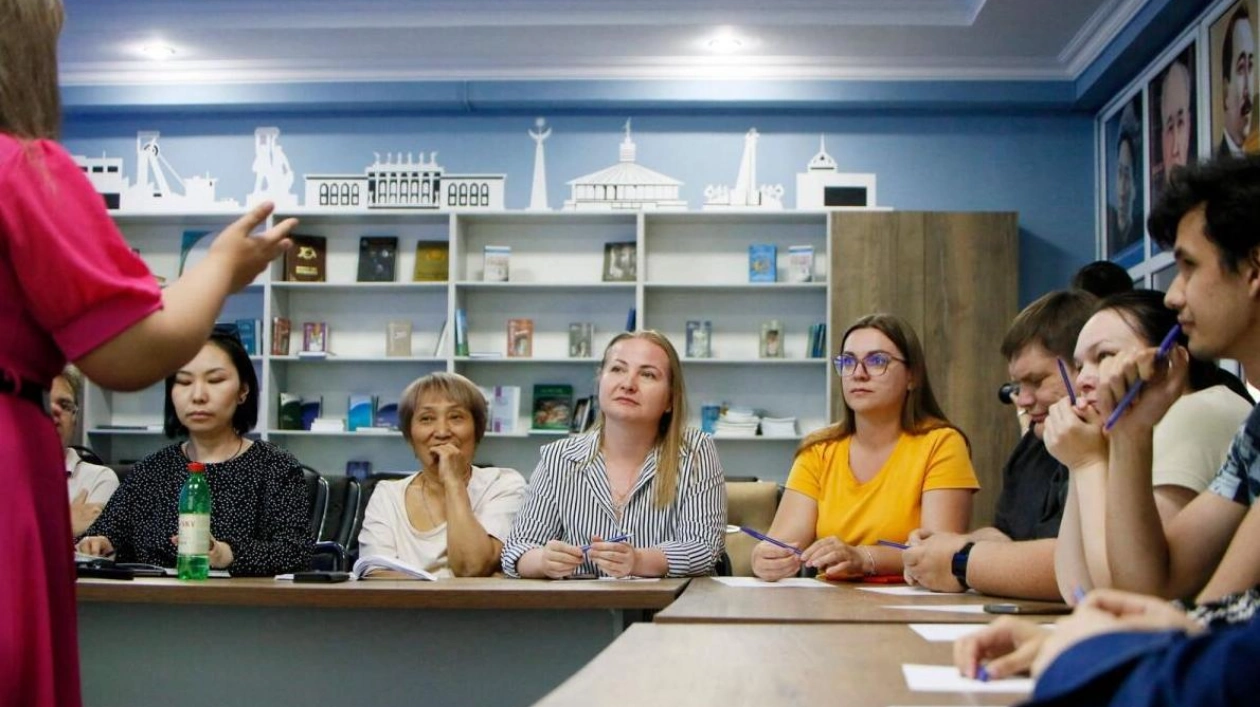With the assistance of her teacher, Lyudmila Propishchan hesitantly pieced together a few rudimentary phrases in Kazakh. For this musician from Kazakhstan, a former Soviet Central Asian nation where Russian is commonly spoken, mastering the local language is a challenging endeavor, yet one she is eager to undertake. "In Kazakhstan, not everyone is proficient in Kazakh. I began learning it a month and a half ago, with the goal of being able to engage in conversation," explained the 44-year-old violinist. Kazakh, like most other Central Asian languages, is a Turkic language distinct from Russian but is written using the Cyrillic alphabet with additional characters.
More than three decades since the Soviet era ended, during which Russian became the dominant language among the elite, national languages that were long neglected are now experiencing a resurgence in this region. Despite Moscow's continued perception of Central Asia as its sphere of influence, there is a growing trend towards embracing national heritage. Kazakhstan, with a population of 20 million, includes approximately three million ethnic Russians. According to official figures, only half of the population uses Kazakh in their daily lives. Propishchan attends a Kazakh language class in Karaganda, the principal city of the vast industrial region, alongside about 20 other adults. The class, conducted in Russian, occasionally sees students discussing complex grammatical points in hushed tones.
"In Karaganda, Russian was ubiquitous, we rarely used Kazakh. But now, the language is being revitalized," remarked Lydia Khan, a 68-year-old student. "People are astonished that I'm learning Kazakh at my age," she added. "I tell them this is my country, and I want to see the language flourish." Yakub Dzhamalov, a young local councilor, grew up in a predominantly Russian-speaking environment but now feels it is his obligation to learn Kazakh. The shift away from Russian in favor of Central Asian languages is closely tied to demographic shifts. Over the past 30 years, the ethnic Russian population in Kazakhstan has decreased from about 38 percent to 15 percent, and in other Central Asian countries, it is less than five percent.
Russia's invasion of Ukraine and the imperialist rhetoric of many Russian officials, including their calls to protect Russian-speaking minorities in former Soviet countries like Ukraine, have also spurred Central Asian countries to intensify efforts to revive their national languages. Since 2023, it has been mandatory for officials in Kazakhstan and Kyrgyzstan to be proficient in their national languages, which are also being increasingly utilized by the media. The Kazakh president's party offers free language courses, sometimes with financial incentives. In Karaganda, local authorities organize entertaining competitions such as "declare your love in Kazakh and win a romantic getaway" or "read a book in Kazakh and win an iPhone." On social media, there are numerous channels dedicated to learning Kazakh.
In a symbolic gesture, Kazakh President Kassym-Jomart Tokayev chose to speak Kazakh at a joint press conference with Russian President Vladimir Putin in autumn 2023, surprising Putin, who is accustomed to regional leaders addressing him in Russian, leading to a humorous scene as Kremlin insiders hurriedly donned earpieces for translation. However, Russian remains widely spoken in Kazakhstan, which shares a 7,500-kilometer border with Russia and is recognized as an official language alongside Kazakh. Russian is omnipresent in public life, the arts, education, and business. The situation differs in other Central Asian countries, with Kyrgyzstan granting Russian similar official status, while in Tajikistan, Russian is designated as the language for inter-ethnic communication. In Uzbekistan and Turkmenistan, however, Russian holds no official status but is still in use.
Across the region, Russian continues to be associated with social advancement, providing access to better employment opportunities domestically and facilitating work in Russia for migrants. For younger generations, obtaining a high-level education without knowledge of Russian remains challenging. Kazakhstan's education minister recently expressed dissatisfaction with the quality of Kazakh language instruction in schools, while his Kyrgyz counterpart bemoaned the poor quality of Kyrgyz language teaching and textbooks. Language policy is a sensitive issue, as all five Central Asian former Soviet states are closely aligned with, or dependent on, Moscow. Discussions about promoting national languages or altering Russian-sounding street names often provoke strong reactions from Kremlin supporters, who warn of potential "persecution" of ethnic Russians.
This justification, which Kyiv rejects, is one of the arguments Moscow cites for its invasion of Ukraine. Regardless of the measures governments take to promote national languages, Russian is likely to maintain its status as a lingua franca, with the countries planning to sign a treaty to further its use as a common language.






